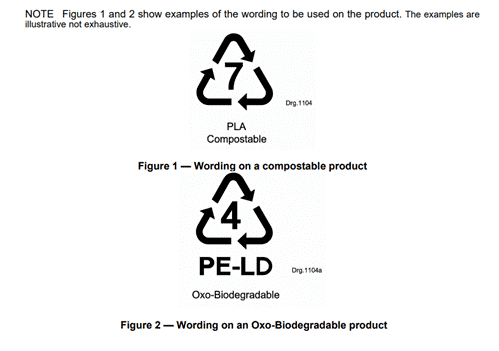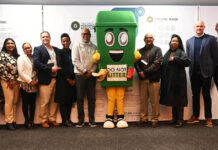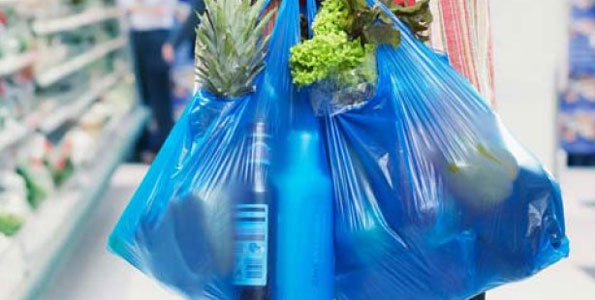SOUTH Africa generates 2.4 million tons of plastic waste every year, according to the World Wide Fund for Nature (WWF). This means that every South African contributes about 41kgs of plastic waste per year and about 14% is recycled.
The South African Bureau of Standards (SABS), together with other national standards bodies and standardisation forums continue to work to provide standards and guidelines for environmentally friendly production and processing of plastics and plastic products.
SABS has recently published South African National Standard (SANS) 1728: The requirements for the marking and identification of degradable plastics. Degradable plastics include but are not limited to biodegradable, compostable, oxo-biodegradable and water-soluble plastics.
SANS 1728 advises consumers to recognise the correct markings and to be aware that any product that claims to have biodegradable plastic packaged, needs to be verified according to the standard, which is aligned to global requirements.
Dr Sadhvir Bissoon, Acting CEO of the SABS explains that vague environmental claims such as ‘environmentally safe’, ‘environmentally friendly, ‘earth friendly’, ‘non-polluting’, ‘green’, ‘ozone friendly’, plastic ‘free’ etc, are specifically cautioned against in SANS 1728.
“Manufacturers that wish to claim their plastic packaging are degradable, need to subject the packaging to the relevant testing and certification requirements.”
SANS 1728 requires that the plastic material used in the packaging must be presented on the packaging, using a material identification code from 1-7, and contained in a triangle.
- 1 = PET (polyethylene terephthalate)
- 2 = PEHD (High-density polyethylene)
- 3 = PVC (Polyvinyl chloride)
- 4 = PELD (Low density polyethylene)
- 5 = PP (Polypropylene)
- 6 = PS (Polystyrene)
- 7 = all other materials (e.g. ABS, PLA, SAN, etc.)
Should the plastic packaging be of a degradable nature, it will be indicated below the triangle, as illustrated below (extract from SANS 1728):

“Currently, in South Africa there are no products that have been certified by the SABS as compliant or meeting the requirements of SANS 1728 and consumers are urged to be vigilant when purchasing plastic products that make false claims of being degradable or ‘environmentally friendly’ or plastic free.
Basically, manufacturers need to ensure that they have verified the type of plastic in their packaging before they can make any claims about their products, says Bissoon.
In South Africa, the Department of Forestry, Fisheries and Environment holds the authority and regulatory power over packaging.
In May 2021, the Extended Producer Responsibility (EPR) recommendations became regulations and include requirements for packaging and correct labelling of products and packaging.















